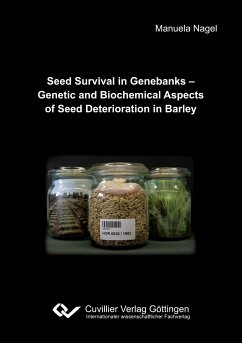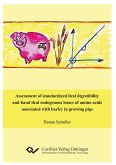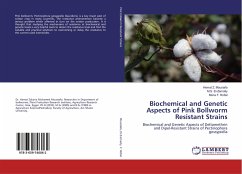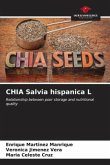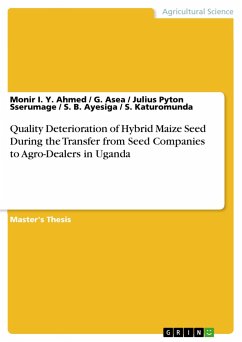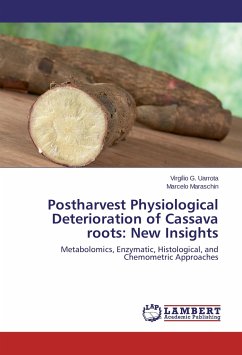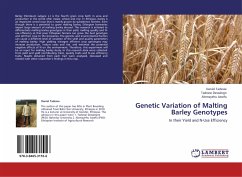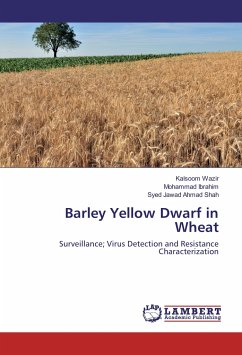Against the background of 7.4 million accessions stored in genebanks, long-term survival of stored seeds is an important trait. This study intended to elucidate genetic and biochemical mechanisms underlying barley (Hordeum vulgare L.) seed deterioration with respect to genetic diversity at different storage treatments ranging from cold storage with low seed moisture content (smc) to experimental seed ageing with high smc. On the basis of an assumed genetic impact on seed deterioration quantitative genetic analyses using four mapping populations were applied. Seeds of three bi-parental barley mapping populations were experimentally aged. Subsequent quantitative trait locus (QTL) analyses revealed 4 major loci on chromosomes 2H, 5H and 7H explaining a phenotypic variation up to 54%. Detected loci were confirmed by the fourth population that compromises a collection of independent barley accessions. These genotypes, multiplied in two field plots and experimentally aged were analysed by a genome-wide association approach which resulted in 105 marker-trait associations (MTAs) at 32 loci. Putative functions of MTAs and closely linked QTLs revealed predominantly biotic and abiotic stress affect seed longevity.
Hinweis: Dieser Artikel kann nur an eine deutsche Lieferadresse ausgeliefert werden.
Hinweis: Dieser Artikel kann nur an eine deutsche Lieferadresse ausgeliefert werden.

